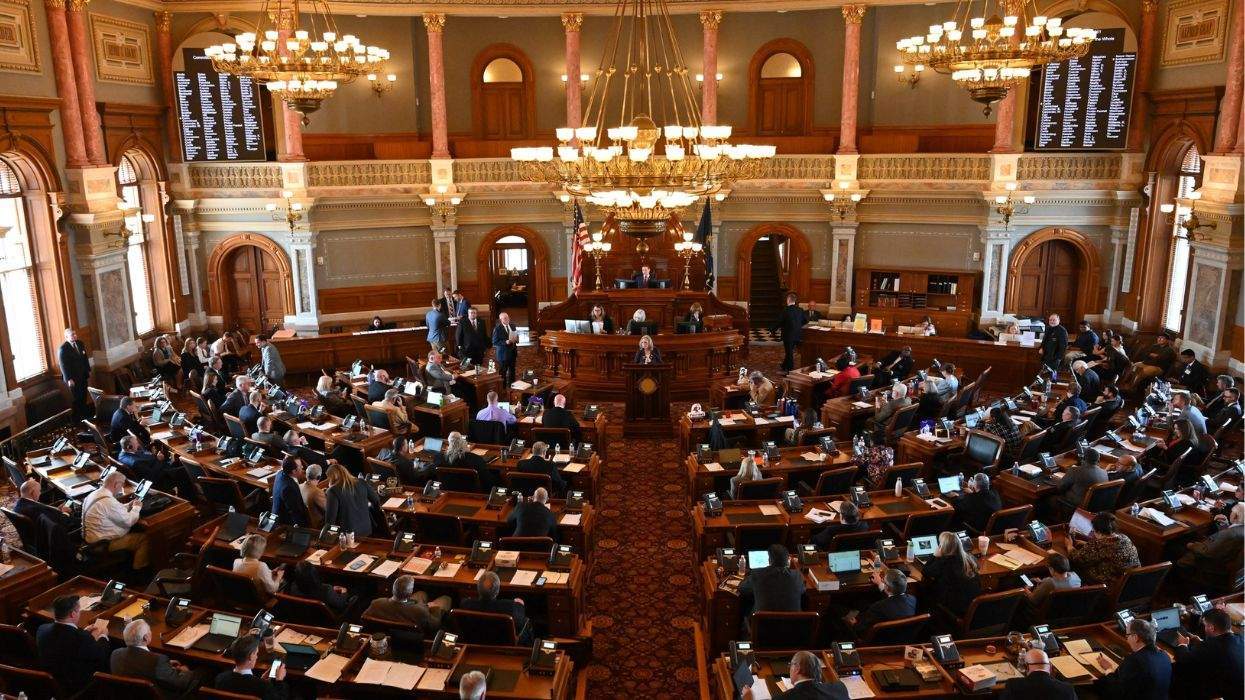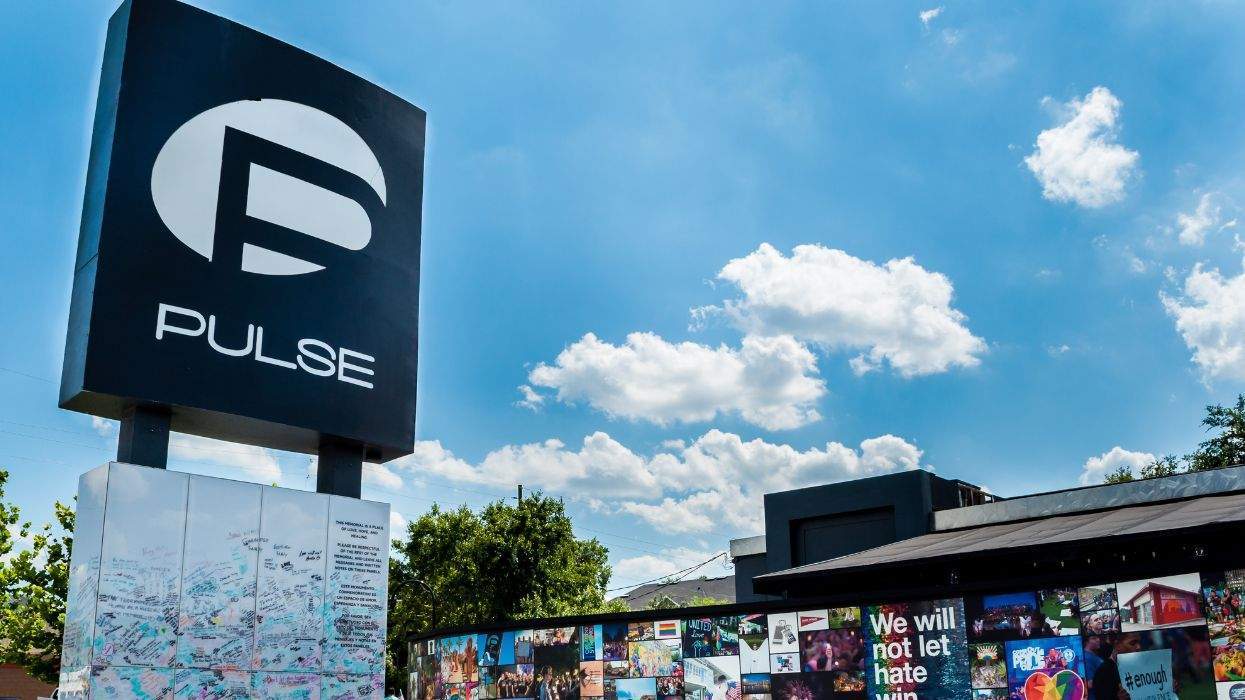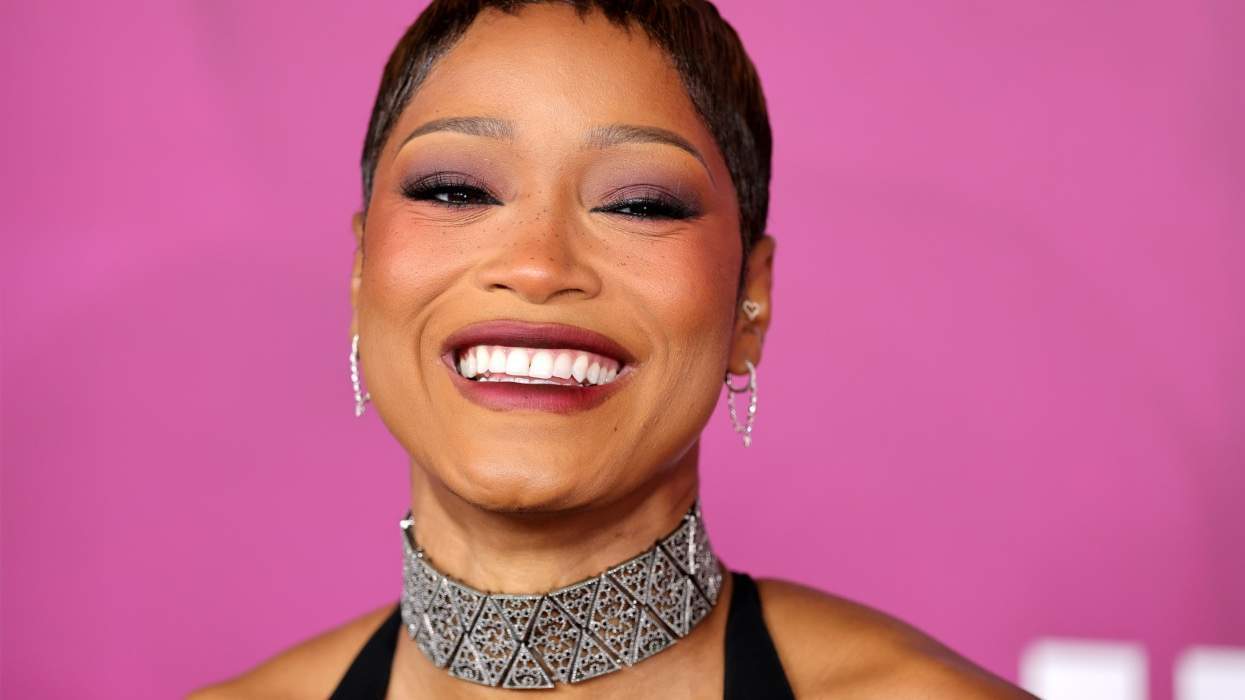Whether it's the eight cases of Karposi's sarcoma noted among gay men in New York City in March 1981 or the five cases of Pneumocystis pneumonia among gay men in Los Angeles in June that same year, it's been three decades since AIDS began ravaging our readers' lives, decimating this magazine's staff, and teaching all of us to live more carefully, love more fervently, and lead by example. These 30 quotes--all taken from Advocate archives--are just a small sampling of the fear, fight, and feats that got us to where we are today.
"We are seeing the beginning of a major epidemic of cancer. The disease happens to be occurring in the gay community, but what is really relevant is whatever conditions are causing Kaposi's [sarcoma]. We are very concerned to head off a panic."
Alvin Friedman-Kien, MD, of the New York University Medical Center. August 20, 1981
"So far, no one knows with certainty what causes the fatal 'new' diseases. Heterosexuals, one person in a monogamous relationship and not the other, even infants have succumbed. Yet many cases are centered in the gay men's community, especially in New York City. Most of us who know a lot of gay men also know one or more who have died. Living with this situation feels a bit like it must have felt to be alive when the plague was decimating the population of Europe."
David Goodstein, president of Liberation Publications, publisher of The Advocate, in a letter to readers. January 20, 1983
"Two and a half years ago, my friends wondered why I was doing this."
Lynn Paleo, who worked with the San Francisco AIDS Foundation, in a feature about lesbians' involvement in AIDS activism. October 14, 1986
"My volunteer life at this point is limited exclusively to health education against contracting AIDS. We've been deluged with threats and the worst possible hype--media hype--about the dangers of AIDS. Yet there have been very few sound voices coming through saying, 'Yes, times are tough and they may get worse, but we can do something about it.' That's what I'm trying to do."
Actress Zelda Rubinstein on her involvement in an early AIDS awareness ad campaign. June 10, 1986
"When confronted with our own mortality, it has become common in our community to have our bodies cremated and our ashes thrown to the four winds. But with the wind goes an important part of our history. And also an important part of our future. I ask you to consider the ramifications of this action on tomorrow's generation of lesbians and gays as they search for self-esteem. As a person with AIDS, I have thought about this a great deal. I believe that we must be the same activists in our deaths that we were in our lives. I urge those of you who are facing death to find a method of leaving a lasting record of our accomplishments--including the acknowledgmet that you were lesbian or gay."
Activist and former Air Force sergeant Leonard Matlovich. June 23, 1987
"Now I deal regularly with the phenomenon of young men who come up after a concert, with tears in their eyes, and say, 'I just want to thank you.' And without them saying it, I know they've had a friend who has died of AIDS."
Folksinger and songwriter Joan Baez. August 18, 1987
"Mr. Reagan, did you explain...that sometimes ignorant people act in such a way [toward people with AIDS] that it is frightening.... How long is it going to take before people get smart...educated people? We're not talking about illiterate people. We're talking about senators and congressmen and the fucking president."
Actress Whoopi Goldberg, speaking at the 1987 March on Washington. November 10, 1987
"At first, I waited politely for the president to respond to the epidemic.... After about a year, I realized the government wasn't going to do anything, so I started doing safer-sex education with community-based AIDS organizations. By 1985, it was becoming clear that we needed to take this a step further, that civil disobedience would be as important as caregiving if we wanted real change."
Waiyde Palmer, an activist who helped organize an AIDS protest during a 1989 San Francisco Opera performance of Falstaff. February 13, 1990
"What we don't need is another study. What we need is leadership, and...once again, the president is hiding."
U.S. representative Henry Waxman, a longtime critic of President Ronald Reagan's inaction on AIDS. September 13, 1988 "I wanted to do something about AIDS through the eyes of the gay community. There was nothing else out there, and people kept saying, 'Why is this still a taboo subject?'"
Lindsay Law, executive producer of the film Longtime Companion. May 8, 1990
"I tell people when I go out to speak that no matter how people got this virus, we've got to open our arms up to everybody--not just to me because I'm heterosexual. Until you're able to educate society--not just about AIDS and HIV but about gays and stuff--they're always going to say and do stupid things."
Retired basketball player and philanthropist Magic Johnson. April 21, 1992
"Remember that someday the AIDS crisis will be over. And when that day has come and gone, there will be people alive--gay and straight people, black and white people, men and women--who will hear that once there was a terrible disease and that a brave group of people stood up and fought and in some cases died so others might live and be free. I'm proud to be with the people I love--those who are fighting this war--and to be a part of that fight. And after we kick the shit out of this disease, I intend to be alive to kick the shit out of this system so that it will never happen again."
Film critic, author, and GLAAD cofounder Vito Russo at the October 1988 ACT UP FDA protest. December 18, 1990
"For those with HIV, never despair, never give up, because things are happening all the time, because we will get there someday, and it could be even sooner than some of us dare to expect."
Mathilde Krim, founding chairman of amfAR. November 16, 1993
"I hear people say, 'Oh, gee, wasn't it horrible then?' but it's just as horrible now. It's just on a grander scale. Instead of spending $20 million, we spend $2 billion, but instead of having 10,000 cases, now we have 200,000 cases."
Randy Shilts, former Advocate staffer and author of And the Band Played On. June 15, 1993
"I've lost incredible numbers of people. I'm to the point where I don't even remember who's alive anymore.... Some days I just assume everybody's dead. I went through a one-year period where I'd say that I just don't have anyone I love anymore. I had one friend whose ashes are buried in my backyard. I've done four quilts, and that's just for people no one else had done it for."
Actor and playwright Harvey Fierstein. October 8, 1991 "In 1986, when a great number of people that I knew had already died and were infected, I just assumed that I was infected also, because I couldn't imagine why I wouldn't have been. Finally, I had the courage to go and get the test, which was one of the scarier moments of my life. I found out that I was HIV-negative. At first I didn't understand it, and then I felt guilty because so many friends of mine were dealing with this issue and I had been released from this burden. After a period of time, I thought, I'm a very lucky man, and I have to show up in this problem, not because I'm fighting for my own life but because I have to be a part of this fight. I've been extraordinarily fortunate in many ways, and I want to be a part of the solution."
Producer and philanthropist David Geffen. December 29, 1992
"Slick Willie, the Republicans were right. We should never have trusted you. You are doing nothing while we die. One year later, lots of talk, but no action. Bill, while me and my community are dying in ever-increasing numbers, all you do is talk."
ACT UP member Luke Montgomery ("Luke Sissyfag"), who interrupted a speech by President Bill Clinton at an AIDS ward at Georgetown University Medical Center. January 25, 1994
"I heard this big, hollow thud, and then I found myself in the water. I just held my head in the hopes... I [didn't] know if I was cut or not. But I wanted to keep the blood in or just not let anybody touch it. Dealing with HIV was really difficult for me because I felt like, God, the U.S. Olympic Committee needs to know about this. But I didn't anticipate hitting my head on the board. That's where I became paralyzed with fear."
Olympian Greg Louganis, telling Barbara Walters about his diving accident during the 1988 Games. March 21, 1995
"[As gay men] we're conditioned to think that we're always at risk for HIV. I know that anytime I've gone for an HIV test, I always worry, even if I know I didn't engage in unsafe sexual behavior or inject drugs."
Jose Zuniga, a volunteer for a 1997 live-virus HIV vaccine trial. November 25, 1997 "If my story can help people--anybody at all--it is positive. I've always tried to help people, whether it be as a gay man or a Mexican-American or now, as someone who is HIV-positive."
1996 national champion figure skater Rudy Galindo. May 9, 2000
"Over time, while the pandemic has not left the GLBT community, it has vastly extended within the LGBT community and into other communities, including heterosexual women, the majority of whom are women of color."
Ana Oliveira, executive director of Gay Men's Health Crisis. August 30, 2005
"At the tender age of 41--a year longer than I once thought I would live--I have never felt better. HIV transformed my life, made me a better and braver writer, prompted me to write the first big book pushing marriage rights, got me to take better care of my health, improved my sex life, and deepened my spirituality."
Author and political pundit Andrew Sullivan. July 5, 2005
"Not until same-sex relationships are fully recognized as equal to opposite-sex relationships; not until a gay or bisexual soldier's sacrifice is equal to that of a straight soldier; not until we put an end to the chipping away of a young boy's self-esteem by bullying in the school yard; not until there is a time when the concern is not who we love but that we love will the stigma of HIV/AIDS fade. And only then will our nation do all it can to finally put an end to a disease that so significantly impacts gay and bisexual men and people of color."
A joint statement by Dr. Marjorie J. Hill, chief executive officer of Gay Men's Health Crisis; Rea Carey, executive director of the National Gay and Lesbian Task Force; and Paul Kawata, executive director of the National Minority AIDS Council. October 1, 2010
"I wonder now as I look around me, Who is going to carry my torch?"
Television personality and AIDS educator Pedro Zamora, testifying before Congress in 1994. July 7, 1998















